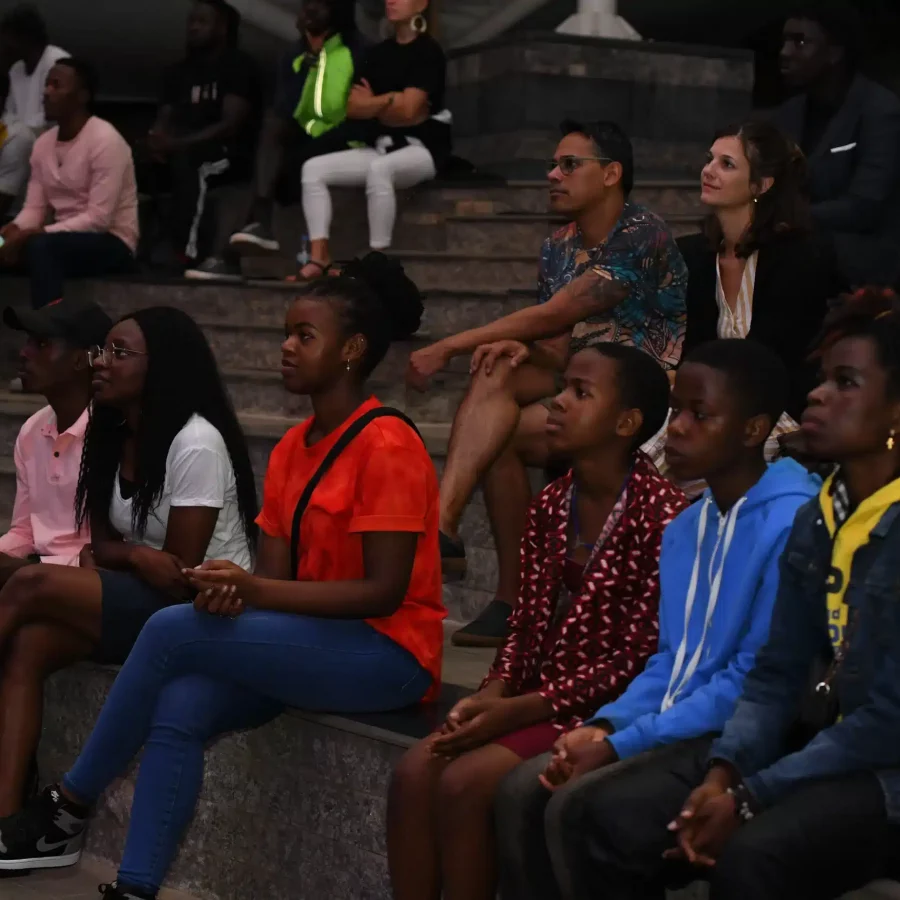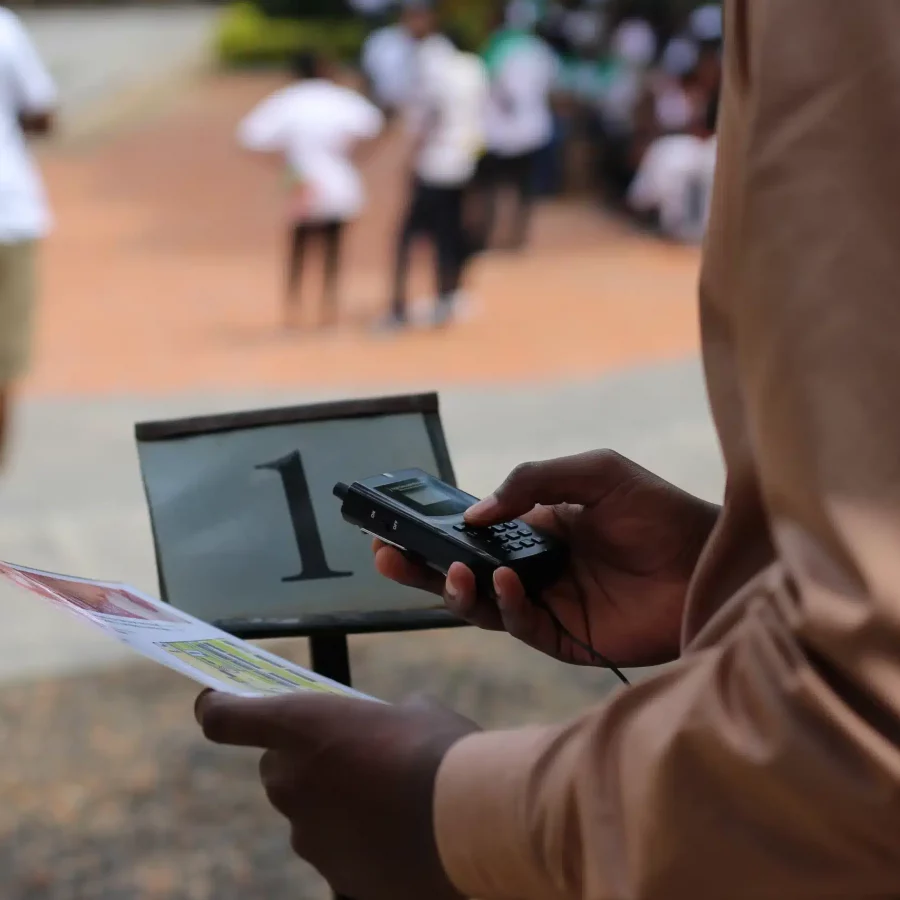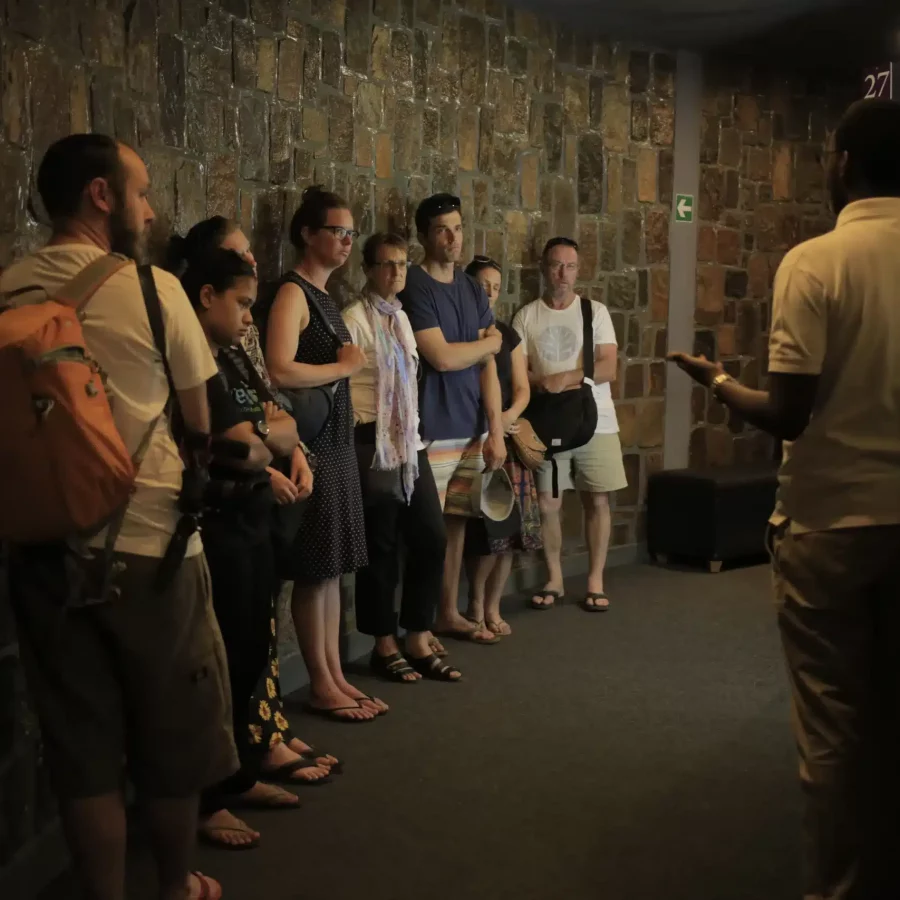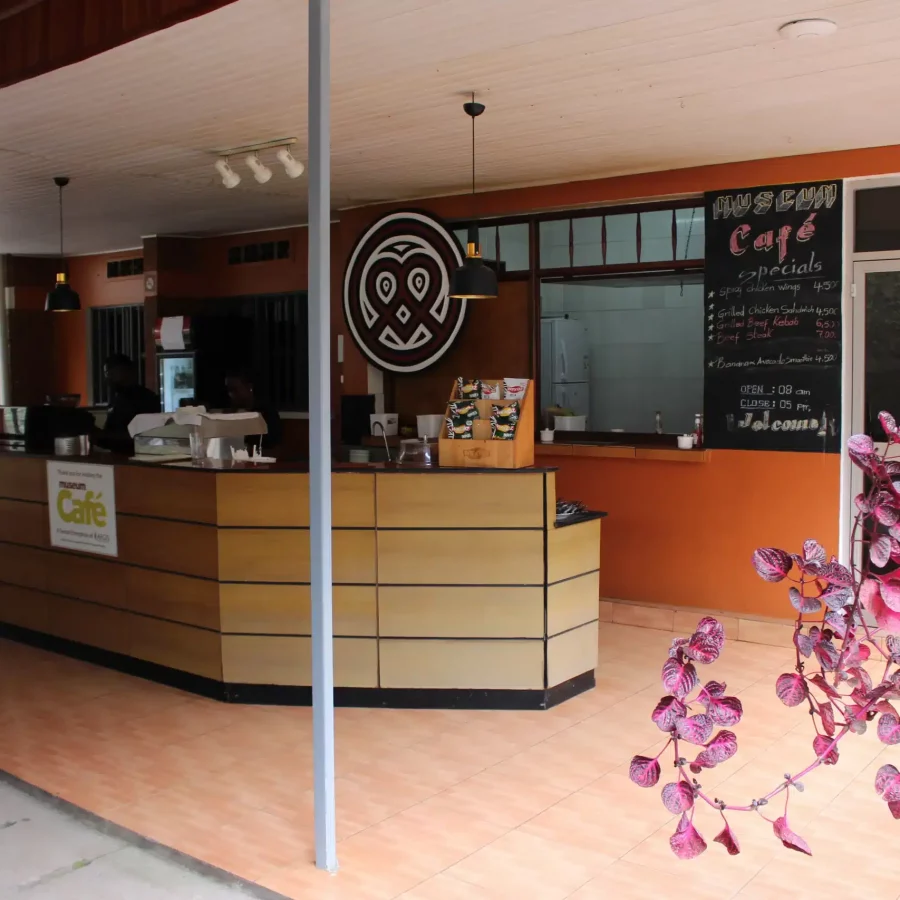
The Kigali Genocide Memorial is the final resting-place for 250,000 victims of the Genocide against the Tutsi. It is also a driver in Rwanda’s extraordinary journey towards healing and reconciliation. Find out more below about the Memorial’s exhibitions, facilities and provision for visitors.
The three narrative sections of this exhibition outline Rwandan history before the 1994 Genocide against the Tutsi; the events of the genocide itself, and Rwanda’s journey of post-genocide justice, reconciliation and renewal. A central reflective space contains sculptures inspired by different aspects of the genocide experience. There are also spaces containing artefacts and photographs of some of the genocide’s many victims. Eyewitness testimony on video is included at various points.
Raphael Lemkin, a Jewish Polish lawyer, introduced a new word to describe the Nazi policy of the systematic destruction of European Jews. He used a combination of Greek and Latin words ‘geno’ (race or tribe) and ‘cide’ (killing). He also proposed a Convention on the Prevention and Punishment of the Crime of Genocide, which was approved by the United Nations in 1948.
‘Tomorrow Lost’ features large photographs of children later murdered in the genocide, and in a few words, introduces us to each of them as individuals. We get to learn things like their favourite food, their favourite toy, and what they liked to do. Their last words. And how they died. Simple and devastating, it ends with the hopes of young Rwandans today for a future free of genocide.
New exhibition content on the first floor sets the Kigali Genocide Memorial in the context of its own history and impact, both as the starting-point for development of peace and values education now built into Rwanda’s national schools curriculum, and as a site from which international change-makers are learning. New content also looks at pressures which may drive future atrocities internationally, and how these can be mitigated or averted.
After the Genocide against the Tutsi was stopped by the Rwandan Patriotic Front in 1994, Kigali’s authorities chose this hillside in Gisozi for mass graves where the city’s 250,000 residents murdered during the genocide could have their final resting-place. Their presence sets the context for everything else which happens here, because remembrance is the starting-point for healing, learning and the prevention of genocide in the future.
The Wall of Names commemorates victims of the 1994 Genocide against the Tutsi. It remains a work in progress. Many of the victims’ names have yet to be gathered and documented. Today the Genocide Archive of Rwanda, based at the Kigali Genocide Memorial, uses audiovisual techniques to record and preserve testimonies, and to document the names and lives of genocide victims.
Find out more about the Archive and its work here.
The memorial gardens provide a place for quiet contemplation. They include the Gardens of Unity, Division & Reconciliation; the Rose Gardens; the Garden of Self Protection; the Provinces of Rwanda Garden; the Flower of Life Garden, and the Forest of Memory. Roses in the gardens have been dedicated by people who lost loved ones in the genocide. For them it is a place of personal remembrance.
The Flame of Remembrance has been a feature of the Kigali Genocide Memorial since it was inaugurated in 2004. The flame is lit on the 7th of April each year, and burns for the 100 days of genocide commemoration from April to July. It symbolises the resilience of Rwandans leaving behind the darkness of genocide to build a brighter future together.
Designed by John McAslan + Partners the 1200 capacity amphitheatre opened in 2014, made possible by governmental support from the UK, the Netherlands, Japan and the Republic of Korea. It hosts commemorations, workshops, dance, music, theatre, film, temporary exhibitions and other cultural events. It has a long-standing relationship with the annual Ubumuntu Arts Festival (see ubumuntuartsfestival.com). To enquire about booking the amphitheatre, email team@kgm.rw or call +250 788 303 098.
Through the Kigali Community Peace Centre (sometimes referred to as the Peace School) at the Kigali Genocide Memorial, as well as centres in other communities around the country, every year, thousands of Rwandans including teachers, students, parents and decision makers are trained on Peace and Values Education to help them build sustainable peace. The Community Peace Centre is located below the Kigali Genocide Memorial’s main car park, above the amphitheatre.
Established by the Aegis Trust at the Kigali Genocide Memorial, the Genocide Archive of Rwanda is dedicated to documentation of the 1994 Genocide against the Tutsi. It has a repository for physical artefacts, and a website featuring an interactive online digital archive. The site includes video testimonies from eyewitnesses, archival photographs, colonial documents, identification records, maps and propaganda publications.
Visit the Genocide Archive of Rwanda online to learn more.
The Museum Cafe is the ideal place to take in what you have seen during a visit to the Kigali Genocide Memorial. Stop and reflect over a delicious coffee or meal, alone or with friends. The income generated from this social enterprise helps to support all aspects of the Memorial’s work. It also supports peace and values education conducted by the Aegis Trust, both on site and off site.
Purchase books and unique mementos in the Kigali Genocide Memorial’s Gift Shop before you leave. The shop offers an excellent selection of books about Rwanda’s recent history. It also includes high quality ‘Imigongo’ – traditional Rwandan wall art – and jewellery featuring the ‘Ubumuntu’ symbol; a celebration and expression of the wearer’s commitment to champion humanity. The income generated from this social enterprise helps to support all aspects of the Memorial’s work.
If you are coming to the Kigali Genocide Memorial, why not plan your visit to coincide with a special event here? Explore our events calendar to find out what’s coming up. One of the highlights of our calendar each year is the Ubumuntu Arts Festival. Held at the Kigali Genocide Memorial’s Amphitheatre, it showcases performance art created to address some of the biggest challenges facing humanity.
To ensure you have the best possible visitor experience at the Kigali Genocide Memorial, we recommend booking your visit in advance choosing one of the options below. If arranging a VIP visit, please contact us directly.
To enhance your experience while visiting, the Ubumuntu Visit Package includes:


The Kigali Genocide Memorial offers guided tours of the exhibitions and gardens. Many of the guides are survivors of the Genocide against the Tutsi. If you would like to visit the memorial with a group, please book in advance. For groups larger than 15, please book at least one week before your visit. Due to space constraints at the memorial, groups larger than 30 will be divided into smaller groups.
Click any of these headings for more information.
Normally 9:00am – 5:00pm (last entrance 4:00 pm), 7 Days a week. Last Saturday each month, opening 1:00 pm to 5:00 pm due to Umuganda.
The Memorial is in Gisozi, ten minutes drive from the centre of town. The easiest way to get here is by car or taxi.
The Memorial is a place of mass burial for victims of the Genocide against the Tutsi. We kindly ask you to dress and behave respectfully.
Everything outside the main building is wheelchair accessible. All permanent exhibitions currently have staircase access only. Assistance is available on request.
The Memorial Cafe offers a wide range of cold and hot food and drinks. Proceeds support the Kigali Genocide Memorial and its work.
Enjoy discounted services for your visit when you select the ‘annual’ option to be a friend of the Memorial and member of the Aegis Trust.
The Kigali Genocide Memorial Virtual Tour offers a convenient way to access the Memorial’s exhibitions from anywhere in the World. It provides a powerful and immersive experience. Explore the Memorial and its exhibitions by yourself, or be guided by Memorial Director Honore Gatera, whose commentary is built in at stopping-points throughout the tour.
Food & Drink
Featuring an open-plan layout with ample seating for groups and solo diners alike, the café offers a peaceful setting to reflect on your visit to the Memorial. From light snacks to a hot meal, there’s something for everyone to savour – and the specialty coffee is not to be missed. The café is a social enterprise supporting the Memorial, so by eating there you also help our work.

Support Us
Visit the Memorial’s Gift Shop before you leave. It offers an excellent selection of books, along with traditional Rwandan wall art, crafts, and jewellery bearing the ‘Ubumuntu’ symbol; an expression of the wearer’s commitment to champion humanity.
Copyright © 2023 Aegis Trust. All Rights Reserved. Registered Charity: UK – Aegis Trust, charity no. 1082856, US – Aegis America Inc, EIN 31-1769192, Rwanda – Aegis Rwanda